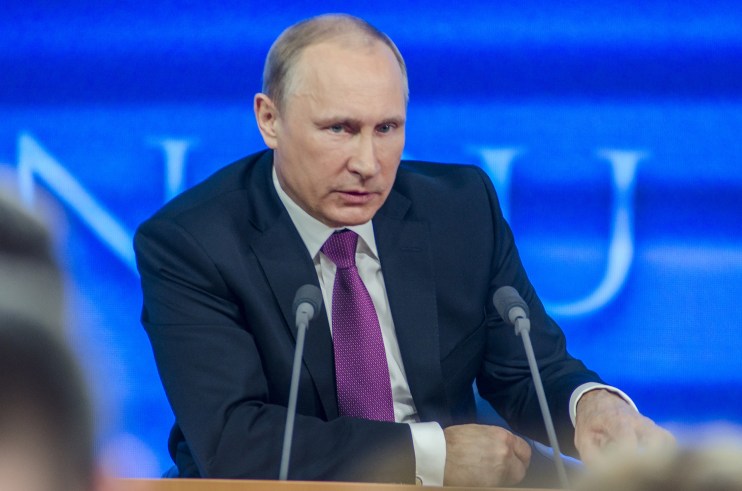Russia to pursue alternative buyers as West ramps up sanctions

Russia will pursue alternative markets for its energy exports, revealed the country’s President Vladimir Putin, amid escalating tensions between the Kremlin and the West.
He said: “We have all the resources and opportunities to quickly find alternative solutions.”
Commenting on finding new buyers, he explained: “As for Russian oil, gas and coal – we can increase their consumption on the domestic market…also increase the supply of energy resources to other parts of the world, where they are really needed.”
Following Russia’s invasion of Ukraine two months ago, the West has imposed heavy sanctions on the country – targeting its central bank, financial institutions, and energy supplies.
Most recently, the European Union (EU) and UK followed the US in announcing plans to ban Russian coal imports as part of a fifth package of sanctions, after reports of civilian executions in Bocha.
Putin outlined his resilient stance during a televised government meeting over the development of Russian Arctic energy projects.
Craig Erlam, senior market analyst at OANDA, was unsure whether Russia would be able to divert supplies in the short-term, suggesting the development reflected longer term shifts.
He told City A.M.: “It’s not surprising that Putin is considering alternative export markets given the sanctions that have already been imposed and the path of travel its major export markets are heading in. Some will be easier to replace than others though, with the major gas networks through Europe not easily diverted like coal, for example, which will still face challenges. It’s a longer term goal and becomes a question of whether Europe can source alternatives quicker than Russia can divert it.”
EU remains split on the prospect of oil and gas sanctions
The EU is reliant on Russia for around 40 per cent of its natural gas and a third of its oil supplies.
It is currently weighing up a ban on Russian oil imports – but the trading bloc remains split over the prospect of further energy restrictions.
While the proposals are popular with the Baltic states, Germany and Austria – which rely on Russian gas for 55 and 80 per cent of its imports respectively – both oppose further sanctions and have triggered emergency plans to manage domestic gas supplies.
Moody’s Investors Service has warned in its latest report – Geopolitical Risks – that a full-scale suspension of Russian energy exports to the EU would lead to energy rationing in countries most reliant on Russian gas.
This would likely trigger an economic recession in Europe and would raise the risk of a global economic downturn.
The Kremlin has insisted it remains committed to global markets, but has recently ordered overseas buyers to pay for its supplies in roubles.
Earlier this month, Putin signed into law requirements for rouble payments – which will mean companies have to open accounts with Gazprombank.
The financial institution will then convert currencies into roubles prior to payments.
Russia has also hinted the scheme could be expanded to oil, coal and wheat purchases – describing the gas system as a ‘prototype’.
While the G7 and the EU leaders have rejected the measures – Hungary recently revealed it would be willing to pay for gas through this process.
Meanwhile, developing tensions means Russian power supply firms could be included in the list of systemically important companies if they start experiencing problems with payments, revealed energy minister Nikolai Shulginov .
He said: “We believe that power companies that buy and sell electricity could also have problems if there are non-payments. Then we will supplement this list of systemic companies.”